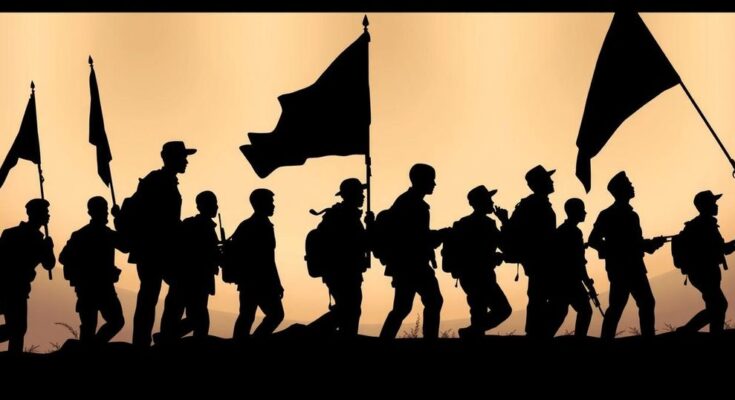The remains of 42 South African freedom fighters, who died in exile during the struggle against apartheid, have been returned from Zambia and Zimbabwe. This repatriation, aimed at providing closure to families, is part of a governmental initiative to honor the legacy of those who fought against oppression. A homecoming ceremony is scheduled, with broader efforts ongoing to repatriate remains from additional countries.
On Wednesday, the remains of 42 South African freedom fighters who had perished while in exile in Zimbabwe and Zambia during the resistance against the apartheid regime returned to their homeland. This solemn event took place at Waterkloof Air Force Base in Pretoria, where government officials and family members gathered to receive the remains, which were recently exhumed from their burial sites in the two countries. This repatriation is part of a broader government initiative aimed at bringing closure to the families of those who fought against apartheid and died far from home. Historically, prior to the end of apartheid in 1994, numerous activists had fled South Africa to acquire military training overseas, with the intention of returning to launch armed uprisings. Many others sought refuge to evade arrest by the oppressive government and gravitated towards neighboring Zimbabwe and Zambia, which housed formidable underground movements. Notably, the African National Congress (ANC) subsequently established its headquarters in Lusaka, Zambia, after being declared illegal in South Africa, leading to many freedom fighters being laid to rest in these foreign lands. Among those whose remains were returned are prominent figures such as Duma Nokwe, Florence Mophosho, and Basil February. Deputy President Paul Mashatile emphasized during a separate Heritage Day event that this repatriation initiative is pivotal in educating future generations about the sacrifices made in the struggle against apartheid. He described the effort as a national memory project, stating, “As a national memory project, this initiative aims to commemorate, celebrate, educate, promote, preserve, conserve, and provide a durable testament to South Africa’s road to freedom.” A forthcoming homecoming ceremony led by President Cyril Ramaphosa is set to honor the remains before they are entrusted to their families for traditional burials in various localities across the country. Furthermore, the government has announced plans to repatriate the remains of other South Africans from several nations, including Lesotho, Ethiopia, Tanzania, and Angola, among others. Deputy Defense Minister Bantu Holomisa expressed hope that these efforts would facilitate the return of more individuals who experienced adversity and passed away abroad, stating, “I hope this process will culminate in getting more people in other countries who died under difficult conditions. We welcome them back to connect with their families.”
This article discusses a significant event in South Africa’s history concerning the repatriation of the remains of South African freedom fighters who died in exile while fighting against apartheid. The article highlights the efforts of the South African government to honor and commemorate these individuals, which is part of a broader initiative to address historical injustices and acknowledge the sacrifices made during the struggle for liberation. It provides a historical context for the exile of many freedom fighters and describes the emotional significance of bringing their remains home for reburial.
In summary, the repatriation of the remains of South African freedom fighters from Zimbabwe and Zambia is a poignant gesture of remembrance and closure for their families. This initiative not only honors the legacy of those who fought against apartheid but also serves as an educational endeavor for future generations to appreciate the sacrifices made in the struggle for freedom. The government remains committed to expanding these efforts by repatriating more individuals from various countries.
Original Source: www.independent.co.uk




